Economics & Business Archive
Free Newsletter

Something unfamiliar is spreading in Argentina: optimism. The impact of President Javier Milei’s dramatic economic reforms has exceeded expectations, even as Milei has maintained popular support. But there is now so much enthusiasm that it raises the risk of irrational exuberance, especially given the scale of the challenge ahead.

As working summits go, Italian Prime Minister Giorgia Meloni’s meeting with Libya’s interim prime minister in Tripoli last week seemed like a routine visit. But her meeting a few hours later in Benghazi with the leader of the rival government there underscored the dangers lurking below the surface of the two sides’ calm relations.
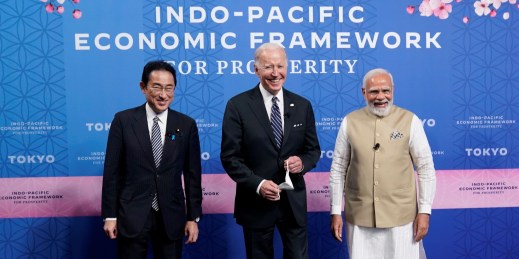
Under the leadership of President Xi Jinping, China has begun to challenge America’s role as the key economic and political actor in Asia. Increasingly repressive at home, Xi has not shied away from asserting China’s regional authority. But while China’s rise often makes headlines, it is not the only trend shaping events in Asia.

In Lebanon, a financial meltdown, state dysfunction and a massive explosion at the Beirut port have submerged the country in crisis for nearly half a decade and left three-quarters of the population in poverty. Now, as 2024 progresses, the Lebanese state’s process of disintegration appears irreversible.

Last week, Nicaragua canceled its deal with a Chinese company to build and manage a canal that stretches across Central America, ending a decade-long saga. Despite this development, China’s influence in Nicaragua has never been greater, in large part due to the diplomatic isolation of President Daniel Ortega’s autocratic government.
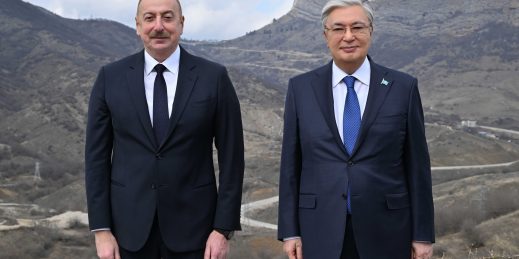
An international effort to create a rail and maritime transport corridor to connect Asia to Europe while avoiding Russian territory has gained momentum in the wake of Russia’s invasion of Ukraine. The success or failure of the trade route, known as the Middle Corridor, depends on solid relations between Azerbaijan and Kazakhstan.
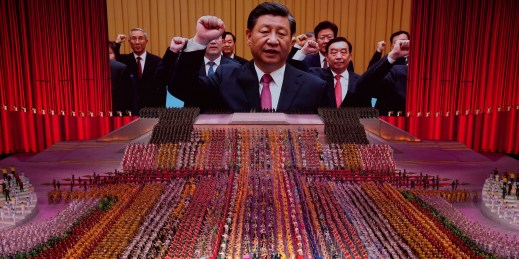
As much as any other single development, China’s rise over the past two decades has remade the landscape of global politics. China rapidly transformed its economy from a low-cost “factory to the world” to a global leader in advanced technologies. Along the way, it has transformed global supply chains, but also international diplomacy.
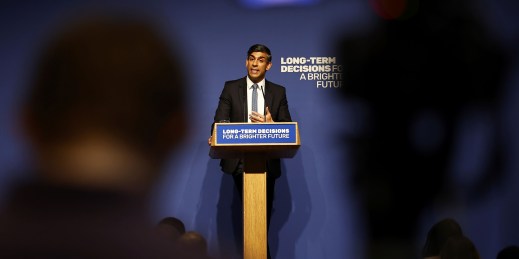
Last week’s local elections mark the firmest confirmation yet that the ruling Conservative Party is on track to be decimated in U.K. general elections later this year. Many observers blame the party’s decline on its failure to boost public services and economic growth. But it is also the product of deeper structural factors.
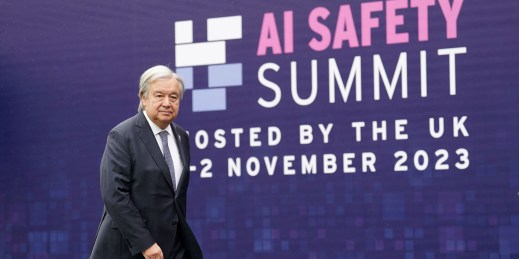
The U.N. often seems powerless, especially amid today’s polycrisis. Yet the organization did seem poised to take a leading role in one emerging global challenge: governing AI, at least until the growing trend of AI nationalism became an obstacle. Ideally, however, the U.N. should still play a leading role in AI governance.
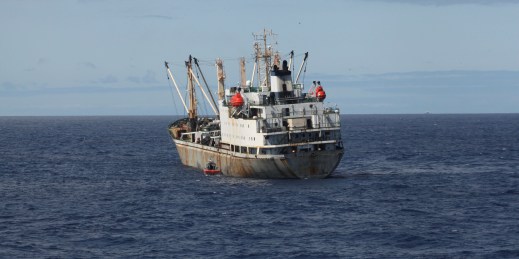
China’s distant-water fishing fleet, the world’s largest, is engaging in human rights abuses and systematic illegal fishing on an unprecedented scale. Urgent action is needed now to rein in the Chinese fleet and end these abuses, which have global security and geopolitical ramifications, as well as real human costs.

While large economies like Germany, France and the U.K. have been mired in stagnant growth and even recession over the past few years, Portugal, Italy, Greece and Spain have managed to flip the EU’s economic script. But questions remain as to whether the region’s economic momentum can be maintained going forward.

